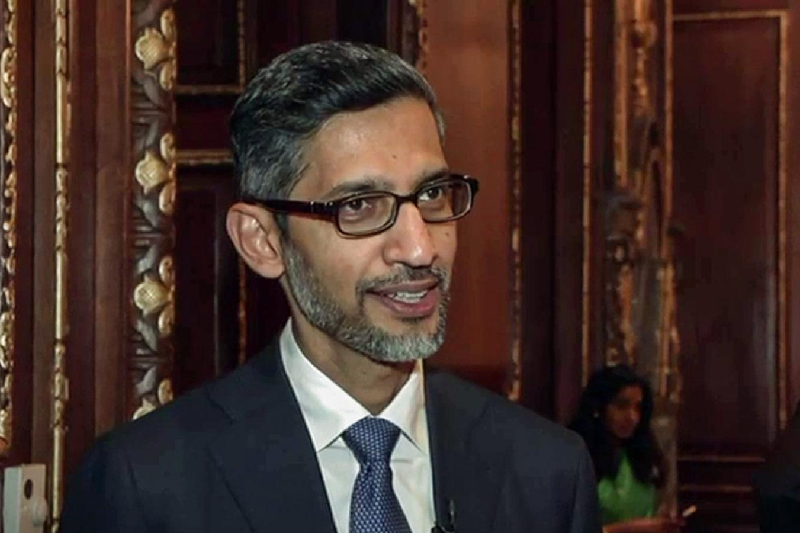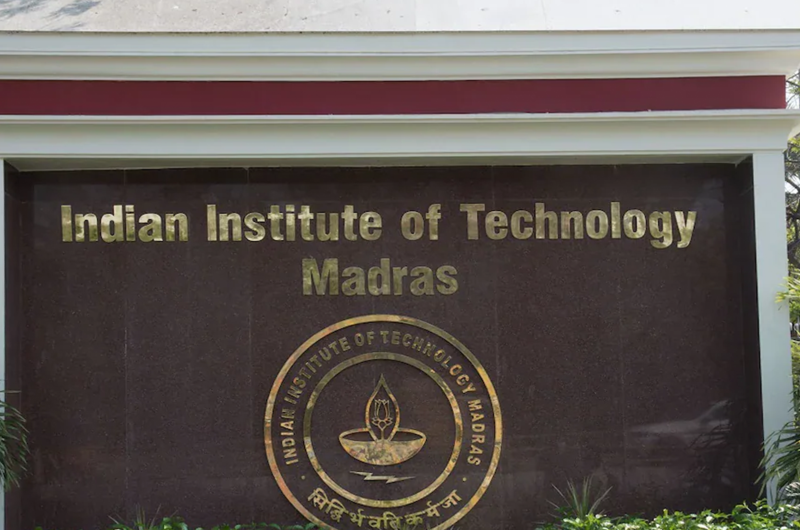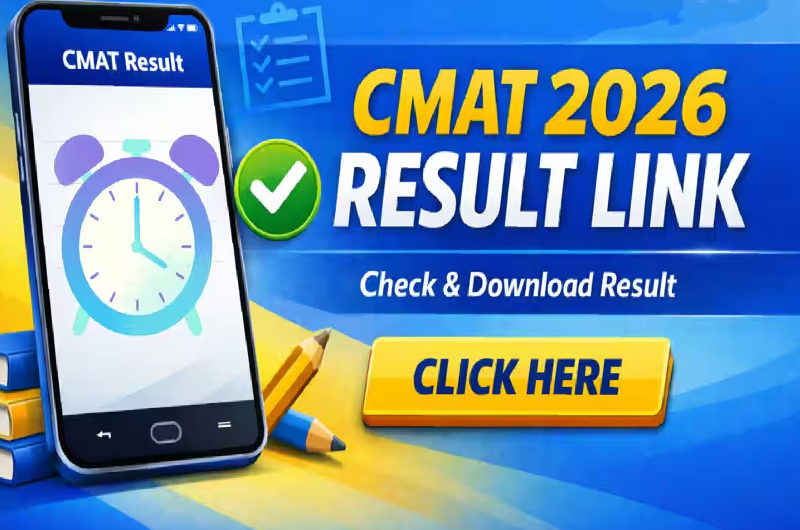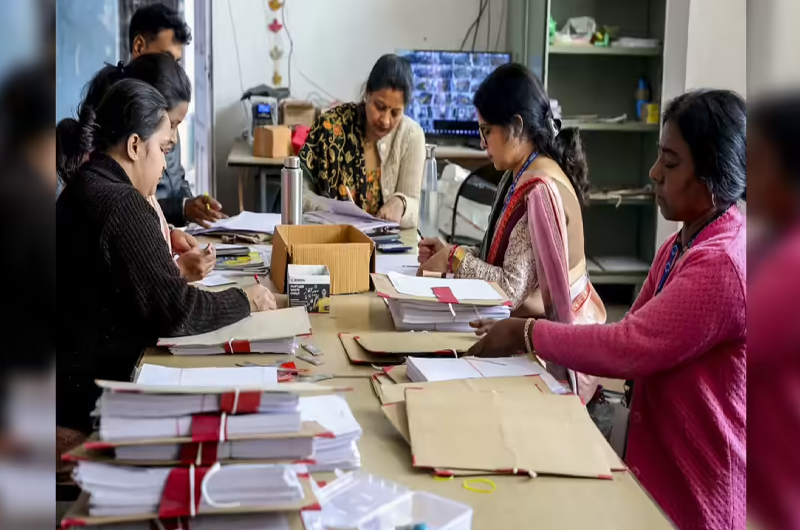
CBSE Unveils New Syllabus for 2025-26: Key Changes in Exams, Grading System, and Subject Choices
In a landmark move aligned with India’s National Education Policy (NEP) 2020, the Central Board of Secondary Education (CBSE) has announced a comprehensive revamp of its curriculum for the academic session 2025-26. These sweeping changes impact students in Classes 10 and 12, affecting everything from assessment patterns and grading systems to subject selection and exam structures. The new CBSE syllabus for 2025-26 is set to redefine how students approach learning, exams, and career readiness.
This article provides a detailed look at the CBSE exam dates and new rules for 2026, along with a breakdown of the updated subject choices and grading systems introduced in line with NEP 2020.
Major CBSE Exam Reforms: Two Board Exams for Class 10, Status Quo for Class 12
One of the most notable reforms in the CBSE Syllabus 2025-26 is the introduction of two board exams annually for Class 10 students. These will be held in February and April, allowing students to improve their scores and reduce exam stress. This dual-exam model allows for a more flexible academic experience, enabling students to make the most of multiple attempts.
In contrast, the structure for Class 12 remains unchanged in terms of frequency. The CBSE Class 12 Board Exams 2026 will start on February 17, and over 20 lakh students are expected to appear. This retention of a single-exam format for Class 12 is aimed at maintaining consistency during the crucial final school year.
CBSE Class 10: New Result Calculation and Grading System
A significant overhaul awaits Class 10 students in the 2025-26 session. The CBSE Grading System 2025 for Class 10 will be based on a revised 9-point scale, designed to offer a more comprehensive assessment of a student’s academic performance.
Each subject will be assessed out of 80 marks in the board exam, with an additional 20 marks reserved for internal assessments. Students must score at least 33% in each subject to be declared as having passed.
New CBSE Skill-Based Subjects for Class 10
As part of the reforms, the CBSE has made it mandatory for Class 10 students to choose one skill-based subject from the following options:
Computer Application (Code 165)
Information Technology (Code 402)
Artificial Intelligence (Code 417)
In addition to these subjects, students must also study English or Hindi as a compulsory language in either Class 9 or Class 10.
Subject Replacement Policy for Class 10 Students
A progressive and student-centric policy has been introduced to help students struggling with core academic subjects. Under the CBSE Syllabus 2025-26, if a student fails in any of the core subjects—such as Science, Mathematics, Social Science, or Language—but has passed a skill-based or optional language subject, the passed subject may be used to replace the failed one in the final result computation.
This innovative approach reduces the impact of failure in one subject on a student’s overall academic progression, reflecting a shift toward a more inclusive and flexible educational framework.
CBSE Class 12: New Electives and Grading System
The Class 12 curriculum is also undergoing substantial changes. The CBSE Class 12 New Electives aim to align academic learning with industry demands and future career prospects.
The newly introduced skill-based elective subjects include:
Land Transportation Associate
Electronics and Hardware
Physical Activity Trainer
Design Thinking and Innovation
Just like in Class 10, the Class 12 board results will now be evaluated using a 9-point grading scale. This will replace the traditional marks-based system and aim to provide a more holistic view of a student's capabilities.
CBSE IT Subject Restrictions: One Tech Course Rule
CBSE has also introduced a restriction on Information Technology subjects for Class 12 students to ensure focused learning. Learners can opt for only one among the following:
Informatics Practices (Code 065)
Computer Science (Code 083)
Information Technology (Code 802)
This restriction helps streamline IT education by avoiding overlapping content and allows students to gain more profound knowledge in one focused area, rather than spreading themselves thin across multiple related disciplines.
CBSE Class 12 Syllabus: Seven Core Learning Areas
The revised Class 12 syllabus organizes subjects into seven major learning domains to promote interdisciplinary thinking and holistic education. These domains are:
Languages – Including English, Hindi, and regional/foreign languages.
Humanities – History, Political Science, Sociology, Geography, and related disciplines.
Mathematics – Encompassing both Core and Applied Mathematics streams.
Sciences – Physics, Chemistry, Biology, and other interdisciplinary sciences.
Skill Subjects – Industry-relevant vocational courses.
General Studies – Designed to develop analytical and critical thinking.
Health & Physical Education – Focusing on mental and physical well-being.
These domains reflect the principles of India’s National Education Policy (NEP) 2020, which advocates for flexible, multi-disciplinary learning pathways.
Why These CBSE Changes Matter
The updated CBSE Syllabus 2025-26 is not merely a revision of content; it’s a paradigm shift in how education is perceived and delivered. With these reforms, CBSE aims to:
Reduce academic pressure through multiple exam attempts.
Encourage practical learning via new skill-based subjects.
Foster inclusivity through flexible grading and subject replacement.
Align with NEP 2020 goals of promoting holistic and student-centric education.
These changes are particularly impactful for students at crucial transition stages—those entering high school and those preparing for college or vocational careers. By balancing academic rigor with skill development, CBSE prepares students for higher education and real-world employment.
How to Prepare for CBSE Board Exams 2026
Given the changes, students and parents should start early to understand the CBSE exam dates and new rules for 2026. Key steps include:
Reviewing the new syllabus structure and subject combinations.
Understanding grading scales and internal assessments.
Choosing skill subjects that align with career goals.
Attending CBSE orientation sessions or consulting school counselors.
Educators, too, will need to adapt their teaching methodologies, moving from rote learning to more project-based and experiential techniques.
Final Thoughts
The CBSE’s introduction of a new syllabus for the 2025-26 academic year marks a significant milestone in Indian education. With new exam formats, skill-based subjects, and a flexible grading system, the reforms promise to make the board exams more inclusive, less stressful, and better aligned with 21st-century skills.
For students preparing for the CBSE Board Exams 2026, staying informed and adapting to the new guidelines is critical. These changes, though initially demanding, have the potential to create more opportunities for success—academically and professionally.
As CBSE continues to innovate in alignment with India’s National Education Policy (NEP) 2020, the hope is to cultivate a generation of learners who are not only academically proficient but also emotionally intelligent, skilled, and future-ready.



